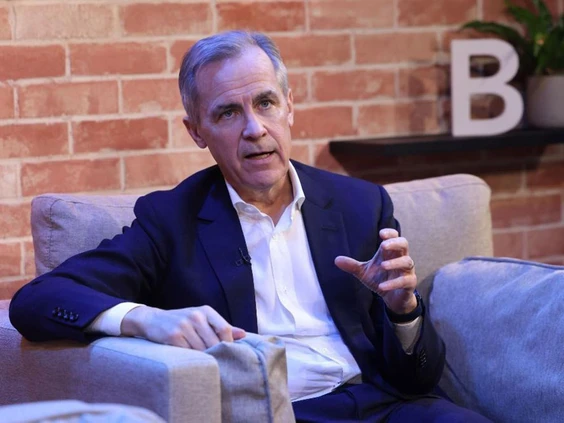Mark Carney sees ‘massive disconnect’ in green finance rhetoric

There’s plenty of money to be made by investing in the green energy transition, and financial professionals who say otherwise aren’t paying attention to the facts, according to Brookfield Asset Management Ltd. chair Mark Carney. There’s a “massive disconnect” between what some of the heavyweights of global finance are saying and the wave of money flowing into green projects, Carney, who’s a former governor of the Bank of Canada and Bank of England, said on Jan. 17 at the Bloomberg House in Davos, Switzerland. Article content Article content The comments follow a pivot in the messaging from bankers and asset managers, who have started using global summits to remind governments they’ll only back the green transition if there’s a profit to be made. It’s a mantra that’s being repeated at Davos. Speaking at a panel earlier on Wednesday, hedge fund billionaire and Bridgewater Associates founder Ray Dalio said “there’s this notion of ‘we should we should we should,’ but there’s the fact of who has the money, what is the size of it and what are their motivations.” Carney said that tracking green investment flows shows there’s enough motivation among the holders of capital to back the transition. In 2023, investors plowed 1.8 times as much into clean energy as they did into fossil fuels, according to the International Energy Agency. And the US$1.8 trillion that was spent globally on clean energy last year is expected to rise to US$4.5 trillion annually by the early 2030s, the IEA estimates. “That 1.8 trillion is going to make a very good returns,” Carney said. “Not every single investment, but the whole thing will make a very good investment elevator pitch.” Last year, many investors in traditional green assets lost money, as wind and solar producers were pummelled by higher interest rates. The S&P Global Clean Energy Index ended 2023 down more than 20 per cent, and has slipped a further 9.5 per cent in January. By comparison, the S&P 500 rose 24 per cent last year and is little changed so far in 2024. Carney said transition finance is an area in which investors stand to generate profits. “If you focus on going where the emissions are, you get paid for helping to solve climate change, and that’s now the reality,” he said. “You get paid more for doing that in the advanced world than you do in the developing, in emerging world, something we’ve got to fix with policy and finance, but because you get paid, you can do both: have a massive impact and, and make returns for your investors.” Carney, who served as governor of the Bank of England between 2013 and 2020, also commented on the U.K.’s green agenda, including a perceived retreat from climate policies by Prime Minister Rishi Sunak. “What I didn’t like — at least what it looked like to me — is that policies were being taken off the table without, certainly without replacements being put in and they were being done for purely political signalling purposes,” he said. “That’s what it appeared. And that isn’t the right environment to keep investment focused and flowing as much as it should. And it’s also, it’s just not good climate policy.” Article content Carney also touched on the outlook for the next few COP climate summits. What happens in Brazil, which will host the 30th Conference of the Parties to the United Nations Framework Convention on Climate Change in 2025, “is critical for the climate,” he said. Brazil’s ecological transformation plan “is significant in and of itself, but potentially very significant” in that “it can help create whole new financing flows around biodiversity, around nature at a scale that’s material,” he said. Carney also is United Nations Special Envoy for Climate Action and Finance and chair of Bloomberg Inc. Together with Michael R. Bloomberg, the founder of Bloomberg News parent Bloomberg LP, he co-chairs the Glasgow Financial Alliance for Net Zero.

